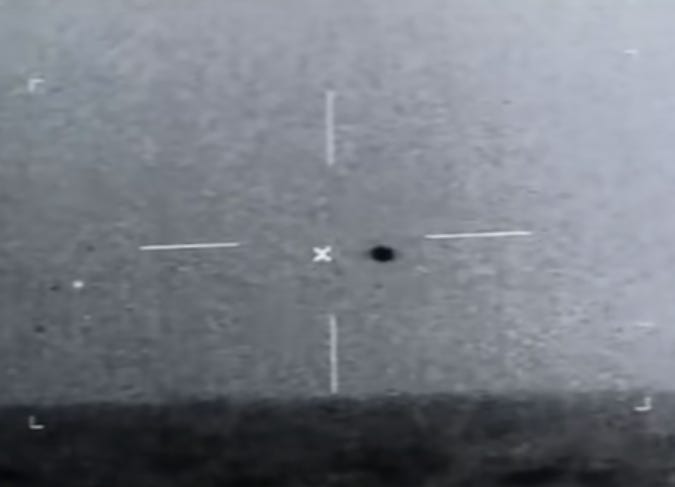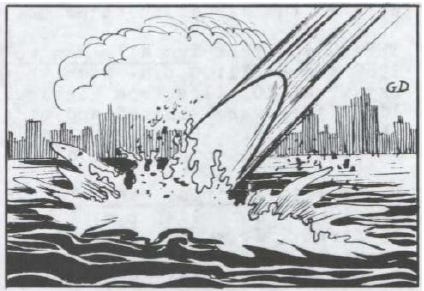It’s been over 70 days since Pentagon spokeswoman Sue Gough confirmed the authenticity of the latest crop of visual UFO evidence depicting unknown aerial vehicles, flashing triangles and submersible objects.
It’s less than three days from the widely-accepted deadline for the public UFO report requested by congress. If Gough and the intelligence community want to stop playing whack-a-mole with leaked Navy material, their best bet is to ensure a timely release of their congressional summary.
Back in April, Gough put her stamp of approval on two new Navy UFO videos. One captured a group of pyramidal objects hovering 700 feet above the USS Kidd, while another from the USS Omaha showcases a wingless, sphere-shaped craft that displayed properties of a transmedium vehicle (it was recorded zipping in the air before dipping below the surface of the water). Both videos were taken off the coast of San Diego, California in July 2019. Curiously, the source of the USS Omaha video noted that a retrieval crew and submarine were sent to look for the object after it descended, but “the ‘spherical’ craft could not be found upon entry to the water.”
An article in SOFREP by former Navy Anti-submarine Warfare Operator and Search and Rescue Aircrewman, Sean Spoonts, deconstructs the incident from a military perspective, yielding valuable insights. He lays out a compelling case that the documented UFO swarms consisted of terrestrial-sourced unmanned aerial vehicles (UAVs) controlled by a foreign military on an intelligence gathering mission.
As proof of his man-made drone theory, Spoonts cites the fact that the objects mainly came out at night — a common military tactic used to make visual identification more difficult. Another piece of evidence concerns the precise coordinates of the occurrences. The unknown craft were observed “operating outside the 12-mile outer boundary of our territorial waters: They weren’t committing an act of war.” The author doesn’t think this was a coincidence, implying that another nation would be aware of this imaginary line and behave in a similar manner as the machines witnessed by Navy personnel.
Spoonts also notes that the ships were in the area on routine training exercises, a detail that elicits this convincing gem: “When we are out there conducting exercises we actually give notice to foreign countries … to avoid these areas so they don’t blunder into the exercises. If we are launching missiles or torpedoes during the exercises we will give very specific notice to adversaries like China and Russia, including the date and location, and invite them to observe.”
He concludes by offering a simple conjecture to explain the 2019 incidents: The Chinese were testing advanced drone technology as a way to showcase their abilities to potential buyers. This Occam’s razor analysis seems reasonable: “If you were China and wanted to sell your drones to another country it would be very good marketing to be able to show color images and video of your drones buzzing U.S. Navy ships at night.”
It doesn’t hurt that federal intelligence agencies and the news media have signaled incessantly that they don’t know what type of aerial phenomenon they’re up against — admissions that could act as great publicity for someone else’s technology.

With observers predicting delays to the forthcoming UFO report, it’s possible that any setbacks could provide extra runway for lingering images or video waiting to be leaked. If the DoD wants to control the narrative, they should quickly deliver the public-facing report.




